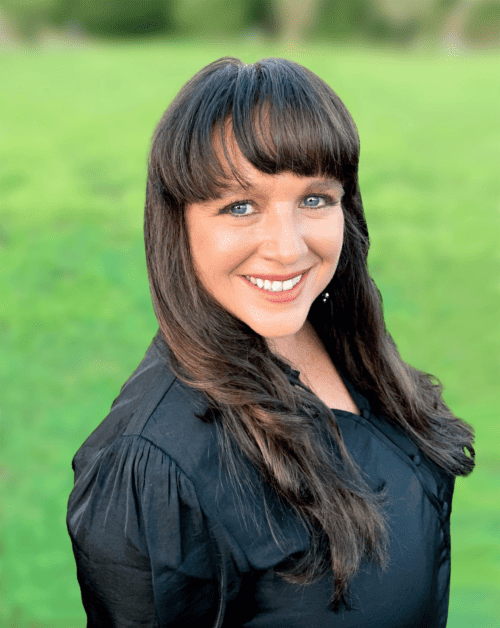If you’ve tuned into ABC’s “The Golden Bachelor” this season, you’ve undoubtedly seen a myriad of women taking a chance on love in their 60s and 70s. It’s a scenario that has become increasingly common, largely due to a phenomenon called “gray divorce.” We spoke to a baby boomer who became a gray divorcee earlier this year, ending his marriage at the age of 68.
We all witnessed gray divorce a couple years ago when Bill and Melinda Gates announced their split after 27 years of marriage. And although the bachelor in “The Golden Bachelor” isn’t a divorcee himself, many of those who are wooing him divorced their spouses later in life. But make no mistake – gray divorce isn’t just something you see on television. It’s happening in towns and cities across the United States.
While you might struggle to imagine your own grandma and grandpa dividing their assets and starting new lives in their senior years, it could certainly happen. The most significant increase in divorce rates in recent years was among those aged 65 and older, with divorces in that age group tripling from 1990 to 2021.
Breaking free from a 19-year marriage
When 68-year-old Ruben Lopez retired after 20 years at the United States Postal Service, he was excited about the future. It was only a matter of time before his wife would also retire from her job and the two of them would have the freedom to explore new places.
“We loved to travel and visit national parks, and we enjoyed visiting the California coast and staying in little cabins there. We were also really excited to go on an Alaskan cruise. I began encouraging her to leave her job early so we could start doing the things we really loved.”
But Ruben soon began to notice some red flags that indicated his wife wasn’t sharing his enthusiasm for the future.
“One of the biggest questions I had in the last few years of our marriage was why she was distancing herself from me. She never gave me a direct answer, she just said that I was the problem and I needed to go to therapy.”
Ruben would soon find out that his wife was cheating on him. He would go on to unravel lies that she told him, his adult children, and her own adult children.
“She began making up stories. It actually seemed like she was projecting – she said I messed up the money in some way, but she was the one who hid money from me. She said I was hostile, but I’ve never been hostile towards her. She was actually the one who would shove me in the chest when she got mad.”
The lies resulted in Ruben’s own son choosing not to speak to him and denying him contact with his grandson. It’s painful collateral damage that Ruben hopes will get better in time.
“I can look back now and see that I missed a lot of signs, she checked out of the marriage several years ago. I didn’t see it because I thought I was married to my best friend, my lifelong partner,” Ruben said.
Ruben’s wife ultimately filed for divorce and the two continued to live together for a month while they sorted out logistics.
“Even after she filed for divorce, I thought we could reconcile. It was devastating when I realized she was really going to go through with it. I never thought this would happen to us.” She moved out of their California home in May 2022. Their divorce was finalized one year later, after 19 years of marriage, when Ruben was 68 and she was 62.
Turning divorce into an opportunity for change

Ruben is very much still in the healing process, but he’s certainly had a few “turning lemons into lemonade” moments. After the divorce, he moved from California to Idaho – something he’d been wanting to do for a long time but couldn’t when he was married because his wife wouldn’t leave her job.
“When we got divorced, that was my opportunity. I made the move and I like it here a lot,” he said, adding that he’s focused on doing things for himself that can help him achieve the life he wants. He plans on joining some friends on a vacation to Mexico in the near future, and often visits a close friend at his scenic ranch in northern Idaho.
“I’m showing myself that I can move on with my life and do things without her, and have fun without her.”
Ruben is also a musician – bass guitar is his instrument of choice – and has every intention of joining a band soon. “I’d like to get back to playing music. It’s something I really love. I’m on the lookout for opportunities.”
Dating opportunities after a ‘gray divorce’
Ruben candidly shared a thought that crossed his mind after his divorce: “Who’s going to want to marry me at this age?” After all, it’s normal to assume the dating pool is smaller for someone in their 60s. But Tamekis Williams, a licensed therapist in Georgia, says there are still plenty of dating opportunities for those of retirement age.
“If the divorce rate among baby boomers is increasing, then I think it may be fair to say that the senior dating pool just might be getting a little larger,” said Williams. “There are also dating apps for older generations to utilize.”
But just because the apps exist doesn’t mean they’re for everyone. Ruben says he has no desire to swipe left or right anytime soon.
“I don’t want to date like that. I’m not in a hurry. I just want to take it slow and make some friends – and maybe one of those friends will eventually want to share a life with me.”
Ruben, who says he “feels more hopeful” about finding love than he did a year ago, also has some words of wisdom for those who find themselves navigating the aftermath of gray divorce.
“The pain is awful when you’re in the midst of it, but it’s important to remember that this feeling won’t last. It’s temporary. Things will get better.”
Exploring the rise in ‘gray divorces’
It’s clear that gray divorces aren’t uncommon, but why are there more senior splits now than ever before? One reason, according to Williams, is because baby boomers typically got married at a younger age than we do today, and getting married young is a high-risk factor for divorce (though it should be noted that this doesn’t apply to Ruben’s situation, as he married his ex-wife while in his late 40s). There’s also a lot less stigma surrounding divorce now than there was when baby boomers were younger.
In addition, Williams pointed out that many couples wait until their kids have moved out of the house before calling time on their marriage, even if they knew their connection was lost years before.
“We must also not forget that older people are influenced by the same stressors as everyone else, including infidelity, substance abuse, mental and physical health issues, financial problems, simply growing apart, and more,” she said.
Williams went on to note that COVID-19 also played a role in many older couples choosing to split.
“During the pandemic, couples were stuck at home with each other, and many began to think about their lives and make changes. For some, that change was divorce.”
While there are a lot of similarities between gray divorce and regular divorce, Williams says there are some unique factors that baby boomers should consider when dissolving their marriages.
“Finances are definitely a big deal because many people are retiring at this time and may not have a retirement plan in place,” she said. “They will also need to consider housing, healthcare, beneficiary changes, and whether they will need a caregiver or not.”
Although gray divorce might not be for everyone, Williams noted that it can sometimes be a positive move for seniors.
“If someone has been stuck in a stagnant marriage where they have not felt alive or free to live a higher quality of life, then gray divorce can give them the opportunity to live out the rest of their years the way they want to,” she said.






